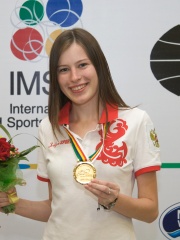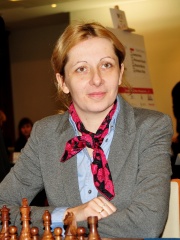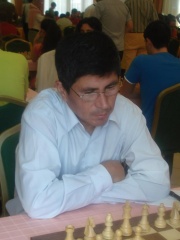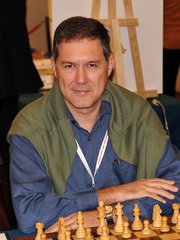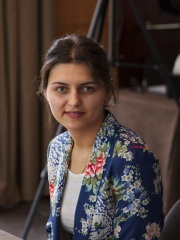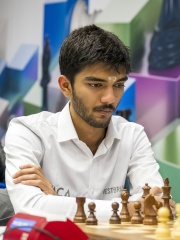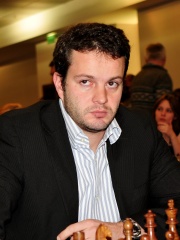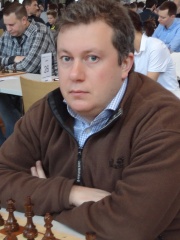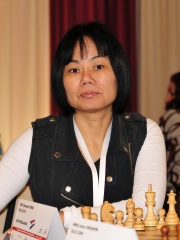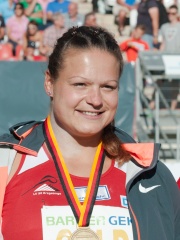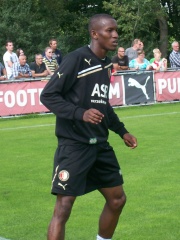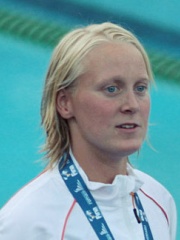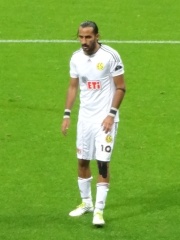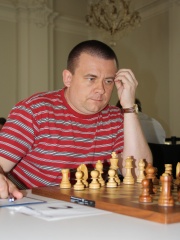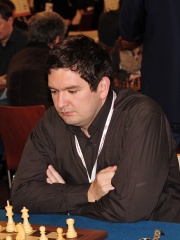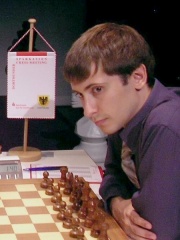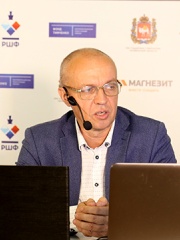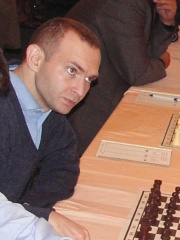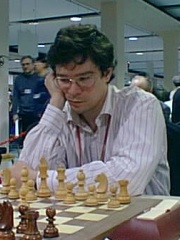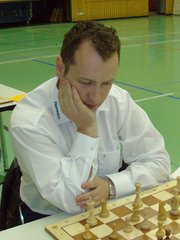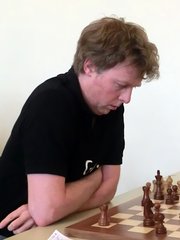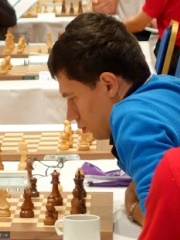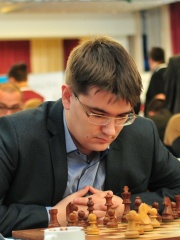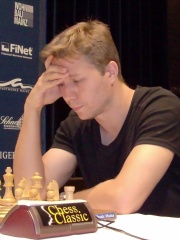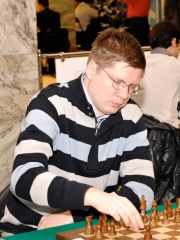CHESS PLAYER
Natalia Pogonina
1985 - Today
 Natalia Pogonina
Natalia Pogonina
Natalia Andreevna Pogonina (Russian: Ната́лья Андре́евна Пого́нина; born March 9, 1985) is a Russian chess player who holds the FIDE title of Woman Grandmaster (WGM). She is the runner-up of the Women's World Chess Championship 2015. She is a two time Russian Women's Champion (in 2012 and 2018). Pogonina was a member of the gold medal-winning Russian team at the Women's Chess Olympiads of 2012 and 2014, and at the 2011 Women's European Team Chess Championship. Read more on Wikipedia
Her biography is available in 28 different languages on Wikipedia (up from 25 in 2024). Natalia Pogonina is the 332nd most popular chess player (down from 326th in 2024), the 3,110th most popular biography from Russia (up from 3,140th in 2019) and the 52nd most popular Russian Chess Player.
Memorability Metrics
Page views of Natalia Pogonina by language
Among CHESS PLAYERS
Among chess players, Natalia Pogonina ranks 332 out of 461. Before her are Monika Soćko, Julio Granda, Miguel Illescas, Bela Khotenashvili, Gilberto Milos, and Qin Kanying. After her are Gukesh D, Étienne Bacrot, Arkadij Naiditsch, Jacob Aagaard, Joel Benjamin, and Peng Zhaoqin.
Most Popular Chess Players in Wikipedia
Go to all RankingsMonika Soćko
1978 - Present
HPI: 44.22
Rank: 326
Julio Granda
1967 - Present
HPI: 44.19
Rank: 327
Miguel Illescas
1965 - Present
HPI: 44.06
Rank: 328
Bela Khotenashvili
1988 - Present
HPI: 44.01
Rank: 329
Gilberto Milos
1963 - Present
HPI: 43.98
Rank: 330
Qin Kanying
1974 - Present
HPI: 43.82
Rank: 331
Natalia Pogonina
1985 - Present
HPI: 43.67
Rank: 332
Gukesh D
2006 - Present
HPI: 43.50
Rank: 333
Étienne Bacrot
1983 - Present
HPI: 43.36
Rank: 334
Arkadij Naiditsch
1985 - Present
HPI: 43.36
Rank: 335
Jacob Aagaard
1973 - Present
HPI: 43.34
Rank: 336
Joel Benjamin
1964 - Present
HPI: 43.32
Rank: 337
Peng Zhaoqin
1968 - Present
HPI: 43.29
Rank: 338
Contemporaries
Among people born in 1985, Natalia Pogonina ranks 647. Before her are Christina Schwanitz, Sekou Cissé, Christian Gentner, Inge Dekker, Javier Garrido, and Adi Rocha. After her are Ignatas Konovalovas, Billy Celeski, Erkan Zengin, Besart Berisha, Cha Ye-ryun, and Galena.
Others Born in 1985
Go to all RankingsChristina Schwanitz
ATHLETE
1985 - Present
HPI: 43.71
Rank: 641
Sekou Cissé
SOCCER PLAYER
1985 - Present
HPI: 43.71
Rank: 642
Christian Gentner
SOCCER PLAYER
1985 - Present
HPI: 43.71
Rank: 643
Inge Dekker
SWIMMER
1985 - Present
HPI: 43.70
Rank: 644
Javier Garrido
SOCCER PLAYER
1985 - Present
HPI: 43.68
Rank: 645
Adi Rocha
SOCCER PLAYER
1985 - Present
HPI: 43.68
Rank: 646
Natalia Pogonina
CHESS PLAYER
1985 - Present
HPI: 43.67
Rank: 647
Ignatas Konovalovas
CYCLIST
1985 - Present
HPI: 43.66
Rank: 648
Billy Celeski
SOCCER PLAYER
1985 - Present
HPI: 43.65
Rank: 649
Erkan Zengin
SOCCER PLAYER
1985 - Present
HPI: 43.65
Rank: 650
Besart Berisha
SOCCER PLAYER
1985 - Present
HPI: 43.64
Rank: 651
Cha Ye-ryun
ACTOR
1985 - Present
HPI: 43.64
Rank: 652
Galena
SINGER
1985 - Present
HPI: 43.64
Rank: 653
Among CHESS PLAYERS In Russia
Among chess players born in Russia, Natalia Pogonina ranks 52. Before her are Sergei Rublevsky (1974), Alexander Moiseenko (1980), Dmitry Jakovenko (1983), Sergei Shipov (1966), Vadim Milov (1972), and Rustem Dautov (1965). After her are Konstantin Landa (1972), Pavel Tregubov (1971), Evgeny Alekseev (1985), Evgeny Tomashevsky (1987), Alexander Motylev (1979), and Vladimir Malakhov (1980).
Sergei Rublevsky
1974 - Present
HPI: 45.99
Rank: 46
Alexander Moiseenko
1980 - Present
HPI: 45.36
Rank: 47
Dmitry Jakovenko
1983 - Present
HPI: 44.86
Rank: 48
Sergei Shipov
1966 - Present
HPI: 44.79
Rank: 49
Vadim Milov
1972 - Present
HPI: 44.49
Rank: 50
Rustem Dautov
1965 - Present
HPI: 44.44
Rank: 51
Natalia Pogonina
1985 - Present
HPI: 43.67
Rank: 52
Konstantin Landa
1972 - 2022
HPI: 42.65
Rank: 53
Pavel Tregubov
1971 - Present
HPI: 42.64
Rank: 54
Evgeny Alekseev
1985 - Present
HPI: 42.61
Rank: 55
Evgeny Tomashevsky
1987 - Present
HPI: 42.58
Rank: 56
Alexander Motylev
1979 - Present
HPI: 42.49
Rank: 57
Vladimir Malakhov
1980 - Present
HPI: 42.29
Rank: 58
